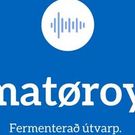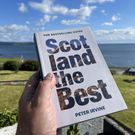

Fróðskaparsetrið: Mikudagin 14. september frá klokkan 12-13 fer Sigri M. Gaïni, ph.d.–lesandi í politiskari filosofi, at hava almenna framløgu um haturstalu á veghæddini á Søgu – og samfelagsdeildini í Jónas Broncksgøtu 25 í Havn
Framløgan er partur av afturvendandi og almennu middagsfyrilestrunum á SSD, sum hava heitið Setursflísin, har øll hava møguleika at støkka inn á gólvið við ella uttan matpakka at fáa nakrar heilavitaminir frá granskarunum, sum leggja fram.
Framløgan hjá Sigri M. Gaïni hevur heitið: “Er haturstala politisk tala? Um talufrælsisprinsipp, haturstalulógir og vaksandi sensur”.
Í framløguni fer Sigri at taka støði í vísindaligu grein síni “Universities and other Institutions – not Hate Speech Laws – are a Threat to Political Speech”. Greinin er javnlíkamett og prentað í vísindaliga tíðarritinum Etikk i praksis.
Sigri fer m.a. at viðgera prinsipiella argumentið The Argument from Political Speech, ið er eitt hitt mest útbreidda argumentið í talufrælsiskjakinum. Argumentið talar fyri fullum talufrælsi, og Sigri setir hetta argument upp ímóti praktiska veruleikanum, sum vit síggja í dag, har sensurur á eitt nú universitetum er vaksandi.
Fokus verður eisini sett á munin millum USA og Europa, tá ið talan er um haturstalulóggávu og krøv um sensur á privatum stovnum.
Greinin er opin og kann lesast her.
Í enska samandráttinum av greinini stendur soleiðis:
One of the strongest arguments against hate speech legislation is the so-called Argument from Political Speech. This argument problematizes the restrictions that might be put on political opinions/political critique when these opinions are expressed in a way which can be interpreted as ‘hateful’ towards minority groups. One of the strongest free speech scholars opposing hate speech legislation is Ronald Dworkin, who stresses that having restrictions on hate speech is, in fact, illegitimate in a liberal democracy. The right to express oneself freely concerning any political decision is, according to Dworkin, a core democratic principle; it is what self-governance – and hence liberal democracies – are built upon. Dworkin and many other free speech scholars based in the United States of America (USA) see hate speech legislation as a threat to expressing oneself freely and critically. I argue that Dworkin and other US based free speech scholars tend to overlook actual hate speech legislation in countries where laws against hate speech have been implemented and have functioned for decades. Furthermore, I argue that the real threat against political speech lies not in hate speech legislation, but rather outside of the law, namely, in private institutions such as universities, museums etc. Restrictions on political speech in various societal circumstances have been on the rise through the last decades – first and foremost in the US. I analyse why these restrictions on political speech are more widespread in the only Western country without laws against hate speech than they are in countries with implemented hate speech laws.
Um tú veitst okkurt, sum VP ikki veit - skriva so til vp@vp.fo

















































































